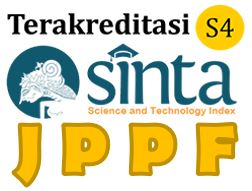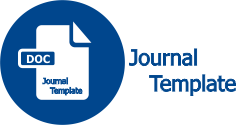The Effect of Using Interactive Multimedia Based on Cognitive Conflict-Based Learning on Global Warming Material on Student Retention
DOI:
https://doi.org/10.24036/jppf.v11i1.7Keywords:
Interactive Multimedia, Cognitive Conflict, Global Warming, RetentionAbstract
The aim of learning physics is that students understand the learning concept before moving on to the next material. Physics learning is conditional in that concepts are mutually continuous so students must understand the material before continuing to the next material. In fact, in the field, students still experience conceptual misunderstandings in global warming material. The way out to overcome this is the use of interactive multimedia based on cognitive conflict to correct students' misconceptions and make them last longer in students' memories. The aim of this research is to see the effect of using interactive multimedia based on cognitive conflict on student retention. This research was conducted using a quasi-experimental design or quasi-experimental method. This research design uses a nonequivalent control group design, with two sample classes, namely the experimental class and the control class, each consisting of 28 students. The research instrument was 25 concept test questions about global warming material, with data collection through pretest, posttest and retest. The hypothesis analysis technique uses the Mann-Whitney test. The results indicate that students in the experimental class had higher retention compared to those in the control class. Although both groups experienced a decline in memory, the decrease was less significant in the experimental class. The hypothesis test yielded a result of 0,11 at a 0.05 significance level, confirming a significant impact of interactive multimedia based on cognitive conflict on student retention in the global warming topic. Therefore, in can be conclude that this learning approach effectively enhances student retention.
Downloads
References
Agustianda, S., Nazip, K., Genisa, M. U., & Sumah, A. S. W. (2024). Pengaruh Direct Instruction Dan SQ3R Terhadap Retensi Siswa Dalam Pembelajaran Biologi Agustianda , dkk – Pengaruh Direct Instruction Dan SQ3R Terhadap Retensi Siswa Dalam. 10, 449–456.
Akwantin, Y. T., Hidayati, Y., Qomaria, N., Muharrami, L. K., Rosidi, I., Kunci, K., Kemampuan, :, Kritis, B., Global, P., & Menengah Pertama, S. (2022). Profil Tingkat Kemampuan Berpikir Kritis Siswa Smp Pada Materi Pemanasan Global. Jurnal Natural Science Educational Research, 5(1), 20–30.
Djatmika, E. T., & Praherdhiono, H. (2024). Belajar Matematika Lebih Menyenangkan : Pengembangan Multimedia Interaktif berbasis Gamifikasi untuk Operasi Bilangan Bulat. 13(4), 5045–5060.
Hamid, A., & Alberida, H. (2021). Pentingnya Mengembangkan E-Modul Interaktif Berbasis Flipbook di Sekolah Menengah Atas. Edukatif : Jurnal Ilmu Pendidikan, 3(3), 911–918.
Hardani, Auliya, N. H., Andriani, N., Fardani, R. A., Ustiawaty, J.,Utami, E. F., Sukmana, D. J., I. R. R. (2020). Metode Penelitian Kualitatif & Kuantitatif (H. Abadi (ed.); Cetakan I,). Pustaka Ilmu.
Haryanti, N., Widodo, A. T., & Arfiani, Y. (2019). Penerapan Model Discovery Learning pada Materi Pemanasan Global untuk Meningkatkan Keterampilan Berpikir Kritis Peserta Didik. Jurnal Edukasi Matematika Dan Sains, 7(2), 55.
Hasanah, N., Hidayat, A., & Koeshandayanto, S. (2020). Pengaruh Strategi Konflik Kognitif Ditinjau dari Kemampuan Awal Siswa untuk Mengurangi Miskonsepsi pada Materi Gelombang Mekanik. Jurnal Pendidikan: Teori, Penelitian, Dan Pengembangan, 5(5), 624.
Hernacki, B. D. P. M. (2010). Quantum Learning. PT Mizan Publika. https://books.google.co.id/books?id=iAurOAjxMBgC
Kartika, H., Desnita, Festiyed, & Suherman, D. S. (2022). Indonesian Research Journal on Education : Jurnal Ilmu Pendidikan. 2(3), 1030–1037.
Magdalena, I., Sundari, T., Nurkamilah, S., Ayu Amalia, D., & Muhammadiyah Tangerang, U. (2020). Analisis Bahan Ajar. Jurnal Pendidikan Dan Ilmu Sosial, 2(2), 311–326.
Mamonto, F. (2024). Efektivitas Media Gambar terhadap Retensi Penguasaan Kosakata Bahasa Arab Tingkat Madrasah Tsanawiyah di Sulawesi Utara. 04, 39–50.
Mufit, F. (2018). Model Pembelajaran Berbasis Konflik Kognitif (PbKK) untuk Meningkatkan Pemahaman Konsep dan Meremediasi Miskonsepsi. 37.
Mufit, F., Asrizal, Puspitasari, R., & Annisa. (2022). Cognitive Conflict-Based E-Book With Real Experiment Video Analysis Integration To Enhance Conceptual Understanding of Motion Kinematics. Jurnal Pendidikan IPA Indonesia, 11(4), 626–639.
Mufit, F., Festiyed, F., Fauzan, A., & Lufri, L. (2018). Impact of Learning Model Based on Cognitive Conflict toward Student’s Conceptual Understanding. IOP Conference Series: Materials Science and Engineering, 335(1).
Mufit, F., Festiyed, Fauzan, A., & Lufri. (2023). The Effect of Cognitive Conflict-Based Learning (CCBL) Model on Remediation of Misconceptions. Journal of Turkish Science Education, 20(1), 26–49.
Mufit, F., Hendriyani, Y., Usmeldi, Dhanil, M., & Tanjung, M. R. (2023). The Effectiveness of Smartphone-Based Interactive Multimedia Integrated Cognitive Conflict Models to Improve 21st-Century Skills. International Journal of Information and Education Technology, 13(11), 1793–1801.
Ningsih, E. H. A. W., Studi, P., Fisika, T., Pendidikan, J., Pengetahuan, I., Ilmu, F., Dan, T., Islam, U., & Syarif, N. (2019). Pengaruh Multimedia Interaktif.
Pramono, A., & Mufit, F. (2022). Design of Cognitive Conflict-Based Interactive Multimedia Using Adobe Animate CC 2019 On Global Warming Materials. Jurnal Geliga Sains: Jurnal Pendidikan Fisika, 10(2), 89.
Redhana, I. W. (2019). Mengembangkan Keterampilan Abad Ke-21 Dalam Pembelajaran Kimia. Jurnal Inovasi Pendidikan Kimia, 13(1).
Sari, D. N., Arif, K., Yurnetti, Y., & Putri, A. N. (2024). Identification of Students’ Misconceptions in Junior High Schools Accredited A using the Three Tier Test Instrument in Science Learning. Jurnal Penelitian Pendidikan IPA, 10(1), 1–11.
Sarnoto, A. Z., Rahmawati, S. T., Ulimaz, A., Mahendika, D., & Prastawa, S. (2023). Analisis Pengaruh Model Pembelajaran Student Center Learning terhadap Hasil Belajar: Studi Literatur Review. Jurnal Pendidikan Dan Kewirausahaan, 11(2), 615–628.
Waraulia, A. M. (2020). Bahan Ajar Teori dan Prosedur Penyusunan. UNIPMA Press, 1–59.
Wulandari, A. P., Salsabila, A. A., Cahyani, K., Nurazizah, T. S., & Ulfiah, Z. (2023). Pentingnya Media Pembelajaran dalam Proses Belajar Mengajar. Journal on Education, 5(2), 3928–3936.
Zuwita, N., & Mufit, F. (2023). The Effectiveness of Cognitive Conflict-Based Learning Models Using Interactive Multimedia. Pillar of Physics Education, 15(1), 120–126.
Downloads
Published
Issue
Section
License
Copyright (c) 2025 Nahdhah Muhdia, Fatni Mufit (Author)

This work is licensed under a Creative Commons Attribution 4.0 International License.





